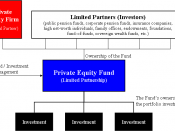What is an IPO?An IPO or initial public offering is first offering of shares to the public. It is unofficially referred to as 'going public'. Privately held companies, usually owned by their founders as well as perhaps private equity investors, list a proportion of its equity in shares on a stock exchange. Most companies who IPO are relatively small and new and are seeking equity capital to expand their businesses. However, in this case, Boston Beer Company was already a large company.
Why IPO?As firms develop and expand into established enterprises, they seek to take on new opportunities, which arise in order to continue their growth in operations. A significant amount of capital is needed in order for these ventures to come into fruition and be successful. If possible, firms will try and finance these projects internally through free cash flows, but often, internal sources are not large enough to finance the expansion.
The company must therefore look to external sources to raise this capital. The company can raise sources through debt, equity or a combination/hybrid of these.
Often, raising capital through debt will not be a possible option, as the firm may be too risky, in which case the bank will not lend any money. Additionally, debt involves contractual servicing in the form of interest payments. If the firm misses one such payment, it is technically breaching its contract, and is thus liable to be sued. Often this places an enormous strain on the firm to meet such monthly repayments, especially in its establishing day.
Thus, equity is often used as a source of finance such as Seasoned or Initial public offerings (IPO). Equity offerings have minimised obligations of repayment compare to debt; the leverage of a firm's capital structure will decrease and therefore rescues overall financial risk; as...


